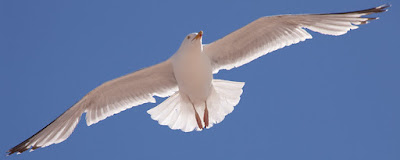Words that are homonyms have the same spelling or pronunciation but different meanings.
SORE and SOAR are homonyms with different spellings but the same pronunciation.
The word SORE functions as both an adjective and a noun.
As an adjective, it can be used to indicate that a part of, or all of, one’s body is painful.
e.g. “Do your eyes ever feel red and sore after swimming in an indoor pool?”
It can also mean upset or angry.
e.g. “Kezia Dugdale says she is ‘sore’ over estrangement from her Moray-based father”
Sore can also mean urgent.
e.g. “Leaded windows, like all other structures have a finite lifetime, and these have served well, but are now in sore need of refurbishment.”
A SORE (noun) is a painful/damaged area of the body.
e.g. “The first sign is often a sore on the skin, usually under their elbow or knee.”
It is also a cause of distress.
e.g. “Brexit reopened those old sores, demanding that people decide whether they were European or British.”
Whether it is used as an adjective or a noun, the word SORE is always a negative term; it is used to describe physical or emotional pain, or to refer to something that needs to be fixed.
The word SOAR functions only as a verb, and it always refers to flying or rising high (literally or figuratively).
One meaning of SOAR is to fly into or remain in the air.
e.g. “For anyone who enjoys wildlife, there can be few sights more uplifting than seeing a golden eagle soaring over a high ridge, or watching a hen harrier quartering a moor, searching for prey.”
SOAR is also used to describe a rapid increase in something.
e.g. “Cauliflower prices have soared and some farmers have suffered financial losses after the destruction of their crops.”
Photo credit: Steve @ Aberdeen (Creative Commons)
I blog about editing, proofreading, and the English language.
Comments and suggestions are welcome.
Many of the phrasal verbs and idioms addressed in this blog were highlighted during an English conversation class I ran a few years ago. I’m grateful to those who attended this for helping me see my native language from a different perspective.
Most of the examples used are quotes from news articles. Click on the links (in yellow) to view the full article.

No comments:
Post a Comment